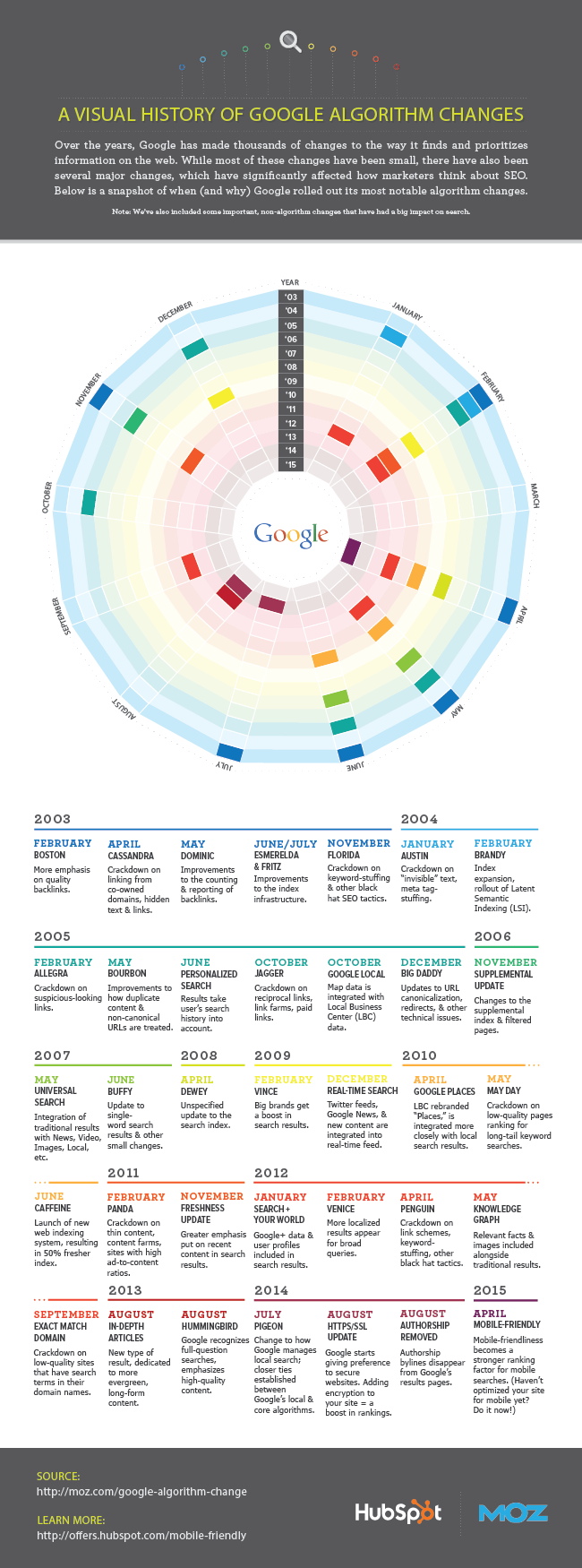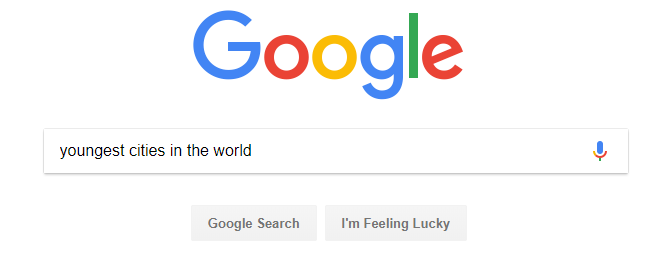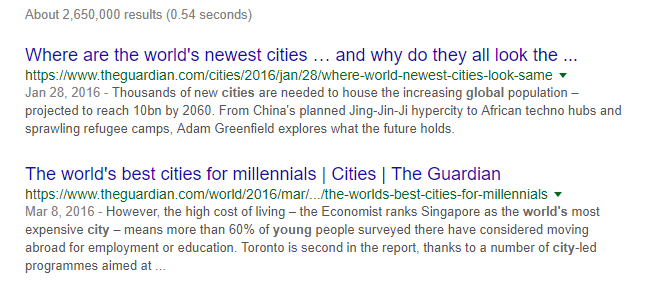Google’s search engine has changed a lot since its first appearance back in 1998 and so have its algorithms. If you’re running campaigns but not visible on Google’s search engine then you’re missing out on the most valuable traffic source available. In this article we’ll show you how to use Google’s algorithms to get your campaigns climb to the top.
Whether you’re new to affiliate marketing or a season veteran, you’ll have heard about the importance of SEO (Search Engine Optimisation). After all, it’s how 99% of internet users find the sites they’re looking for and discover new ones along the way. Therefore, if you really want to get your campaign noticed then you’re going to need to know how to work Google to your advantage. In order to do this, let’s travel back in time and see how Google’s algorithms have changed over time.

If the infographic above has you scratching your head and worrying that every change implemented means another barrier to be broken down then don’t. If you’re a whitehat/greyhat marketer then not all of the changes that have been made will affect your campaigns but there are some which will. However, if you’re doing blackhat campaign you’ll find that a lot of the changes listed will have a negative impact on your business. If you’re not sure which you are then check our article on Whitehats, Greyhats and Blackhats. Here, we’ll be focusing on the changes to Google’s algorithm which affect grey and whitehat marketers.
Panda

Back in February 2011, Google introduced Panda. The aim here was to crack down on content farms which focused on quantity over quality and spammed vistors with adverts.
Panda spelt the end for marketers who had been at the top of Google’s rankings thanks to keyword stuffing, spam and mass production of low-quality content. However, Panda didn’t just affect affiliates, it also saw sites like Amazon and Ebay fall in the search rankings as a result.
Panda was very successful in targeting sites which focused primarily on filling their pages with ads and vary little content and is one of the key reasons why native advertising has grown in popularity.
Tip: As an affiliate, you should never try to include too many links on a single page. If you are constantly plugging links then Google’s algorithm will recognise it and your site will be penalised with a lower ranking.
Try to ensure that any links you have on your site are organic and that the content is related to the place to which you send your link.
Penguin

Later in April 2011 Google introduced their Penguin update. This was implemented to cut down on people filling their content with keywords in order to improve their Google ranking. In order to give your site the best possible chances of progressing up the ladder you should aim to provide content that is engaging and only introduce keywords in where they fit organically.
Tip: Whilst you shouldn’t stuff your content with keywords, you must still use them! Two such places where they are of vital importance are in the title of your content and the description. If you don’t mention them here, then Google won’t recommend your site as you won’t have directly addressed the topic which the user searched for.
Hummingbird

In August 2013, Google launched Hummingbird to help users search by intention rather than by the exact wording of what had been typed in. If you have ever looked for the answer to a question but not been certain how to phrase it to optimise your results, then Google Hummingbird has been on hand for the last 5 years to help you out.
How will this affect you as an affiliate? Quite simply, your content needs to be useful and it needs to answer a question or provide a solution. In doing so, Google can better equate whether or not your site answers the question posed by the searches made by potential visitors.
Tip: Make sure that each piece of content you produce answers at least one question. For example, if you are selling weight-loss supplements, then consider the questions which users might have and then answer them in your content and explain why visitors should buy your product.
RankBrain

RankBrain was launched by Google in October 2015 as an extension of Hummingbird and was Google’s first attempt at introducing machine-learning AI into their search algorithms.
The aim of RankBrain is to find content even when the search engine doesn’t recognise the exact user input. It does this by assessing the words and phrases used and trying to evaluate which other words could have been used and might be related to the initial query.
The introduction of RankBrain was incredibly successful and it is now considered to be the third most important factor in Google’s ranking algorithm.
Tip: This is a bit trickier to use to your advantage but it is still possible. One way is to use words related to the keywords on your site. For example, if you are advertising sports equipment then you can use various different terms such as sports gear, kit, uniform etc. Google can then better assess whether or not your site fits into the category a potential visitor types in.
Look at the example below. The entry written is deliberately vague.

The search term ‘youngest cities in the world’ could refer to those which are the most modern or those which have a high population of young people. Here are the two top returns on Google:

Here, Google has returned the two options which were closest to what the algorithm believed to be the original intention. Notice how neither of the two results show the word ‘youngest’. This is because Hummingbird and RankBrain have worked together to figure out what was being asked and given the closest results possible.
As demonstrated above, your content will show up if it answers a search query, even if that query wasn’t exact. This goes to show that keywords are now far less important than they once were and that content is king. If you don’t produce content that attempts to answer people’s questions or provide solutions to problems then you’ll find that you fall in the rankings.
In future articles we’ll be looking in more detail at how you can improve your Google rank. We’ll also be giving you top tips on how to structure and write your content so that it gets the attention it deserves, so make sure you subscribe to our newsletter below and stay tuned for the latest insider tips.

